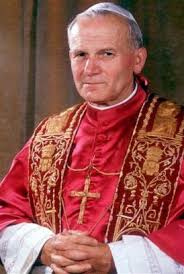Points for Reflection -From Fr Carlo Tei
Monday, December 7, 2009
2nd Sunday of Advent
Baruch 5:1-9. The prophet consoles the Jewish exiles and tells them that God will restore glory to Israel.
Philippians 1:4-6, 8-11. We are urged to a greater love of each other so that we may be ready for Christ’s coming.
Luke 3:1-6. John the Baptist demands strict preparation for the Lord’s coming.
Points for Reflection -From Fr Carlo Tei
1. On the second Sunday of Advent, the Church invites us:
a) to wait for the coming of Christ in joy (1st Reading),
b) to prepare ourselves for his encounter by leading a blameless life (2nd Reading),
c) to heed the command of John the Baptist to convert and show repentance (Gospel).
2. Jerusalem, the holy city, is urged to abandon sorrow and distress and put on the “beauty of the glory of the Lord” and to arise and observe the flow of the Jewish people coming from the four corners of the globe. (First Reading).
Jerusalem is the image of the Church. She, too, suffers on account of the estrangement and dispersal of so many of her children and she, too, is invited to rekindle her hopes, confiding in the Saviour, who mystically comes again each Christmas to lead her to salvation with all her people.
3. In the Second Reading, St Paul expresses his joy and happiness at the news that the Gospel has been preached and is flourishing among the Philippians, and he is grateful for their help and collaboration. However, St Paul challenges the Philippians to be “pure and blameless” and to reach perfection “for the day of Christ”.
The same challenge is addressed to us today. “To lead a pure and blameless life” is synonymous with holiness, which is not a prerogative of the elite but the responsibility of every Christian. As Vatican Council II says: Everyone in the Church, whether “belonging to the hierarchy or being cared for by it, is called to holiness . . . The Lord Jesus preached holiness of life to each and every one of his disciples, regardless of their situation” (LG 39-40).
4. In the Gospel, Luke attaches a very great importance on the preaching of John the Baptist in the desert. As a good historian, he gives us the historical background by fixing the time when John appeared. “When Pontius Pilate . . . etc.” According to Luke, the preaching of John is a turning point in the plan of salvation.
The liturgy joins Luke and wants us to meet John before meeting Christ. It wants us to listen to John in order to make all the necessary preparations for the coming of the Redeemer. All of the preaching of John is focused on repentance for the forgiveness of sins. The Church repeats to each one of us today: “Repent and change”. Could we have a better programme for the Advent Season?
Subscribe to:
Comments (Atom)


 天主聖三,我們感謝你將教宗若望保祿二世,賜給教會,使他彰顯天父的慈愛、基督十字架的光榮,及聖神愛的光輝。他完全信賴你的無限仁慈,及聖母瑪利亞慈母般的轉求。他給予我們耶穌善牧的生動肖像,並為我們指出成聖是基督信徒日常生活的必然本分,又是通往與你永恆共融的道路。請你因教宗若望保祿二世的轉求,依照你的旨意,賜給我們所需的恩寵。願他早日被列入諸聖的名冊。亞孟。
天主聖三,我們感謝你將教宗若望保祿二世,賜給教會,使他彰顯天父的慈愛、基督十字架的光榮,及聖神愛的光輝。他完全信賴你的無限仁慈,及聖母瑪利亞慈母般的轉求。他給予我們耶穌善牧的生動肖像,並為我們指出成聖是基督信徒日常生活的必然本分,又是通往與你永恆共融的道路。請你因教宗若望保祿二世的轉求,依照你的旨意,賜給我們所需的恩寵。願他早日被列入諸聖的名冊。亞孟。






